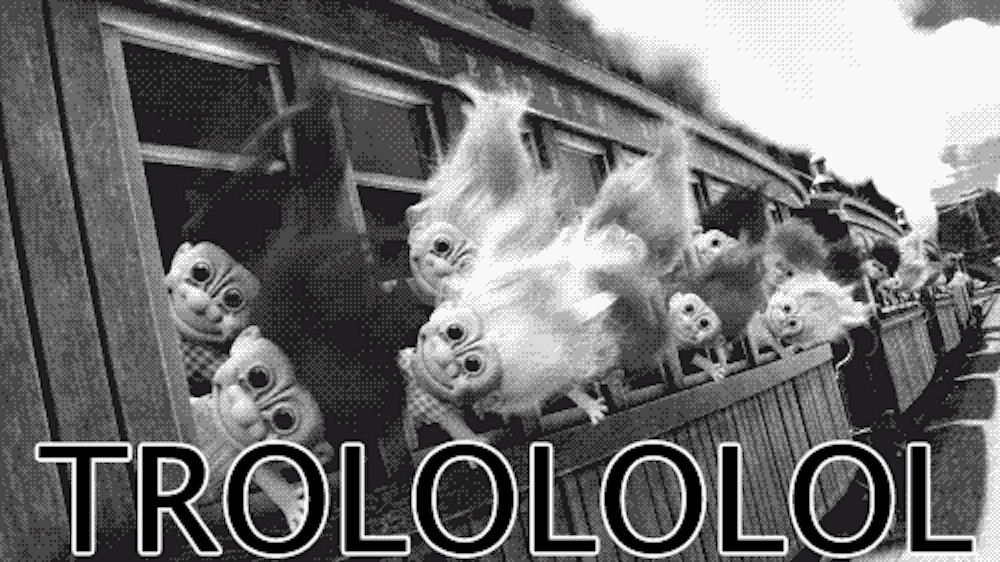
Social platforms, notably Facebook, are starting to shift away from the airy talk of “brand engagement” and instead offer more nuts-and-bolts ad offerings. But one area remains from the bygone “join the conversation” era: comments on ads.
Naturally, this often backfires on brands. They can find themselves the subject of mass ridicule, leaving some wondering why brands pay for negative publicity.
McDonald’s, for instance, pays for Twitter and Instagram ads that elicit less than glowing replies. There are some Twitter users — like @fart and the loose-knit cohort of Twitter comedians known as Weird Twitter — who make it a point to mock brands’ promoted tweets. A Facebook user told fish oil brand Krill Oil that its product “turns [her] stomach” during a recent Facebook ad campaign. And Michael Kors found itself the recipient of user backlash when it became one of the first brands to advertise on Instagram last fall.
@McDonalds there’s a ton of things better than mechanically processed poison.
— *jess ♡ ellie*/LUKE? (@JessxJolie) July 9, 2014
“It’s definitely a concern for brands,” Rob Leathern, former CEO of Optimal, a company that created enterprise software for social media advertising and was acquired by social media marketing company Brand Networks.
There are two schools of thought when it comes to negative comments on social ads. One believes brands should not pay to be publicly ridiculed and, therefore, should be able to shut off comments on ads or, at the very least, police them. And the other, more New Age one fervently believes comments are an integral part of the fabric of the social Web, even with its ads.
“If you’re going to have ads that look like content and can be shared and you can get extra reach out of them, you have to be willing to accept the likelihood that some people won’t like them and leave negative comments,” Leathern said.
Despite this sentiment, he said former clients routinely requested a way to shut off comments on their ads, a plea that has gone mostly ignored by the platforms itself.
Twitter has no plans to stop users from replying to promoted tweets. To do so would go against Twitter’s user philosophy of facilitating conversations and advertising pitch of creating ad units that are almost identical to users’ tweets in aesthetic and function.
Facebook has no immediate plans to change how comments work on its ads but is not ruling anything out. It does, however, allow brands to “hide” comments on its Facebook ads, meaning they’re only visible to the person who posted it and their friends. Facebook told Krill Oil that negative comments on ads were somewhat to be expected “cheaper than using market research,” in this New York Times story from Sunday.
Comments have been particularly vitriolic on Instagram, though, to the point that clients of digital agency Rokkan have expressed trepidation about advertising on the platform despite its large number of users, according to Rokkan spokesman Harley Block. Instagram users are so averse to ads that in March they lambasted an ad for Charity Water, a non-profit that supplies clean water to developing countries.
Brands on Instagram are able to delete specific comments, but that can be arduous task when the haters come out en masse. Charity Water’s ad had received 7,000 comments in less than a day.
Block said the negativity toward Instagram ads will probably cede in 12 to 24 months. But for now, brands will have to bear them regardless of platform.
“Removing comments from platforms where comments are an inherent part of the experience defeats the purpose,” McCaffrey said. “You might as well do display advertising.”
Indeed, some brands and agencies embrace this kind of feedback as a means to improvement.
“Social media is a place for feedback and relationships. If you put an ad out there and people are telling you that your product sucks, maybe it’s an opportunity to find out why,” said Joe McCaffrey, head of social at digital agency Huge.
Coinciding with the notion that negative comments are the price of doing business when advertising on Facebook and Twitter is the argument that brands might be better off ignoring them. Trolls are an inherent part of social platforms — and the Web, in general — and trying to silence them can sometimes be counterproductive.
More in Media

In Graphic Detail: The scale of the challenge facing publishers, politicians eager to damage Google’s adland dominance
Last year was a blowout ad revenue year for Google, despite challenges from several quarters.

Why Walmart is basically a tech company now
The retail giant joined the Nasdaq exchange, also home to technology companies like Amazon, in December.

The Athletic invests in live blogs, video to insulate sports coverage from AI scraping
As the Super Bowl and Winter Olympics collide, The Athletic is leaning into live blogs and video to keeps fans locked in, and AI bots at bay.





